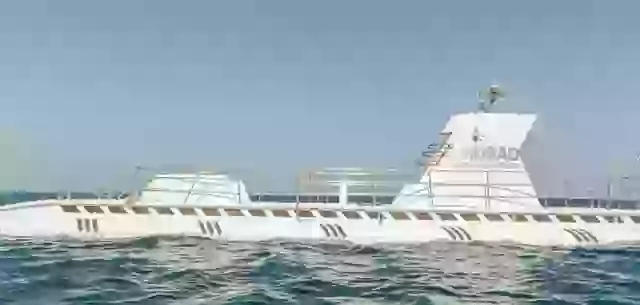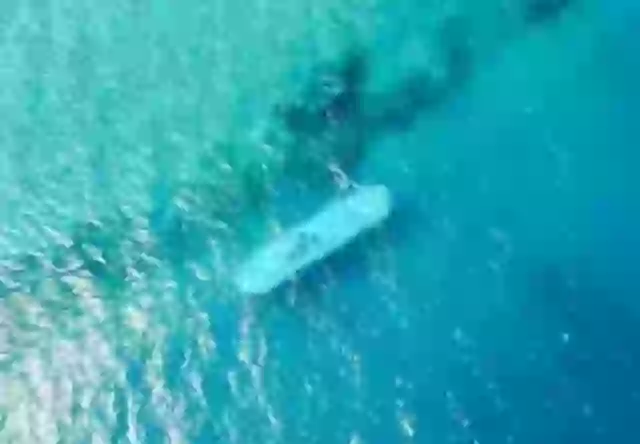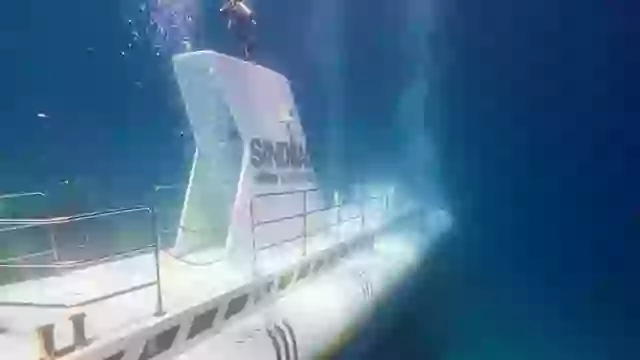A devastating maritime tragedy unfolded in Egypt’s renowned Red Sea resort area when the tourist submarine “Sindbad” sank, resulting in the tragic deaths of six tourists. The incident occurred off the coast of the popular tourist destination Hurghada, an area widely celebrated for its vibrant marine ecosystems, notably breathtaking coral reefs and abundant sea life. The sinking has triggered an intense wave of scrutiny around safety measures and regulatory compliance within Egypt’s marine tourism industry.

The vessel was carrying a diverse group of passengers from various nationalities, including visitors from Russia, Norway, Sweden, and India. In total, 45 individuals were on board, among them five Egyptian crew members tasked with guiding the visitors through the region’s spectacular underwater landscapes. The submarine trip, widely advertised as a unique, safe, and unforgettable adventure, was meant to showcase the wonders of the Red Sea at approximately 25 meters beneath the surface. Tragically, what started as a leisure expedition quickly turned into a nightmare scenario.
Eyewitnesses recounted harrowing scenes as the submarine reportedly submerged while some of its hatches were still open, causing water to flood into the vessel at a rapid and terrifying pace. Panic quickly ensued among passengers, who found themselves suddenly trapped beneath the waves. According to survivors’ emotional accounts, confusion and chaos dominated the situation as many struggled desperately to escape. One survivor described the terrifying ordeal vividly, recalling the desperation of those aboard trying frantically to reach safety through flooded compartments, with only some managing to escape unharmed.

Egyptian authorities, responding rapidly, initiated a large-scale rescue operation immediately following the distress call. Emergency services, including the Red Sea Health Directorate and the Egyptian Ambulance Authority, went on maximum alert, swiftly dispatching a fleet of 21 ambulances, rescue divers, and emergency personnel to the site of the sinking. After extensive efforts, authorities managed to rescue 39 of the submarine’s occupants. However, nine people were severely injured during the incident, with four critically wounded passengers still fighting for their lives in intensive care units at local hospitals.
Sindbad Submarines, the operator of the ill-fated submarine, had been operating in Hurghada for several years and prominently advertised its vessels as among the most reliable and advanced tourist submarines globally. The company boasted ownership of two out of only fourteen genuine recreational submarines worldwide. Their promotional materials emphasized safety, comfort, and extraordinary views of marine life, promising a lifetime memory to tourists without any of the risks commonly associated with deep-sea diving.
Yet, despite assurances of safety and emergency protocols—including oxygen masks, life vests, and stringent emergency procedures—the sinking has raised serious concerns regarding the vessel’s compliance with international maritime safety standards. Authorities have since begun a thorough and wide-ranging investigation, interrogating crew members and closely reviewing the submarine’s maintenance and operational records. Preliminary suspicions suggest potential negligence or operational errors may have led to the devastating event.
This latest tragedy is not an isolated incident in Egypt’s marine tourism sector. Recently, several maritime incidents have occurred near popular resort towns along the Red Sea coast, prompting increased concern from the international community. In November 2024, four tourists tragically lost their lives when the yacht “Sea Story” capsized near Marsa Alam, while June 2023 saw a deadly fire onboard a motorboat named “Hurricane,” killing three British nationals. Additionally, the region’s reputation has been marred by occasional shark attacks, including fatalities involving tourists from Italy and Russia within the past two years. Such repeated incidents highlight significant questions regarding regulatory oversight and safety enforcement.
These ongoing safety challenges have led many countries’ foreign offices to update travel advisories concerning Egypt, particularly highlighting the varying degrees of compliance among diving operators. Tourists are being urged to undertake due diligence and engage only with reputable tour companies whose adherence to rigorous safety standards is clearly documented and transparent. The recent tragedy involving the Sindbad submarine will likely further intensify international scrutiny, potentially impacting Egypt’s tourism sector significantly.

Officials in Egypt have pledged an exhaustive examination of the incident, committed to uncovering the precise factors that led to such a catastrophic failure. They stress their determination to ensure accountability and to implement stringent measures that would prevent similar tragedies in the future. Authorities acknowledge the paramount importance of ensuring tourists’ safety, recognizing that the country’s global reputation as a leading tourist destination hangs in the balance.
This tragedy underscores an urgent need for stricter safety regulations and regular, thorough inspections within Egypt’s marine tourism sector. As tourism represents a critical economic lifeline for Egypt, incidents of this magnitude not only inflict emotional devastation upon victims’ families but also threaten significant economic repercussions. Restoring confidence among international travelers must become a central priority for local authorities and tourism operators alike.